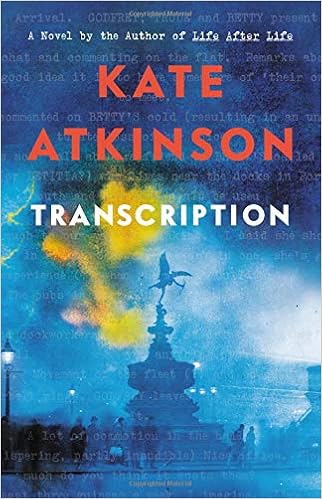When a country is torn in two, it splits in surprising zigzags, and it is hard to guess who will find themselves on one side and who on the other. There were stories of families divided, friends taking up arms against each other, towns where neighbour warred against neighbour. [loc. 1246]
Makepeace never knew her aristocratic father. She lives with her mother, and her aunt and uncle, in Poplar, near London. Times are unsettled, and Makepeace's childhood is not a happy one. Her mother forces her to spend nights in the graveyard, fighting off ghosts: but Makepeace doesn't understand why, until her mother dies and Makepeace, ridden by guilt, goes out to the marshes to search for her mother's ghost ...
Then her father's family, the Fellmottes, seeks her out, and Makepeace is sent to the chilly old mansion of Grizehayes. Far from being welcomed with open arms, she's set to work in the kitchen, where she encounters James, a half-brother she never knew existed. The two of them plot to escape -- though James is convinced that escape is impossible -- and start to understand the fate that awaits them. For the Fellmotte family has an ancient gift, or curse: the ability to house the ghosts of the recently-dead. And such receptacles are valuable.
Makepeace, who is the sort of girl who attacks people who are cruel to animals, is already making unexpected use of her gift, but does not care to be a vessel for the family's forebears. James, on the other hand, is horribly tempted by the power that the Fellmotte elders promise. And as though this conflict weren't sufficient, the country itself is at war, King versus Parliament. Makepeace doesn't care who wins: she just wants to live. But with a Royal Charter gone missing, a cunning spymistress with a secret agenda, and James' disappearance in battle, Makepeace finds herself embroiled in politics.
It's hard to read this novel and not think of Brexit and the schism it's created in British society: but the civil war is not the focus of the story, except inasmuch as it's a metaphor for different belief systems forced to share space. Makepeace is aptly named: with common sense and stubbornness she encourages acceptance, if not actual harmony, between opposite factions. And she is determined to maintain her sense of self -- a laudable aim in anyone, but especially a teenage girl without resources. She's not afraid to stand up for herself and her rights -- and the rights of those under her protection.
Hardinge makes the Fellmottes monstrous, but not without cause. Their ascendancy is based on retaining key memories and skills over generations, and they believe that their gift is God-given. That gift does confer real power, though seldom upon anybody who is not a white male. (I did like Lady Morgan, and found her particular brand of villainy wholly reasonable.)
Some delightful passages, too, concerning the war: here is Helen, a Royalist agent (likely based on
Jane Whorwood), smuggling gold to the king via the laundry service.
"‘They gave you special pass as a laundress?’
‘Of course. He is the King.’ Helen gave a lopsided smile. ‘God’s appointed. They cannot help but revere him, even as they fight him. Rebelling against him is only treason. Leaving him to wallow in common filth would be sacrilege.’
‘They want His Majesty defeated and brought to heel,’ Peg explained. ‘But they do not want him smelly.’" [loc. 2430]









